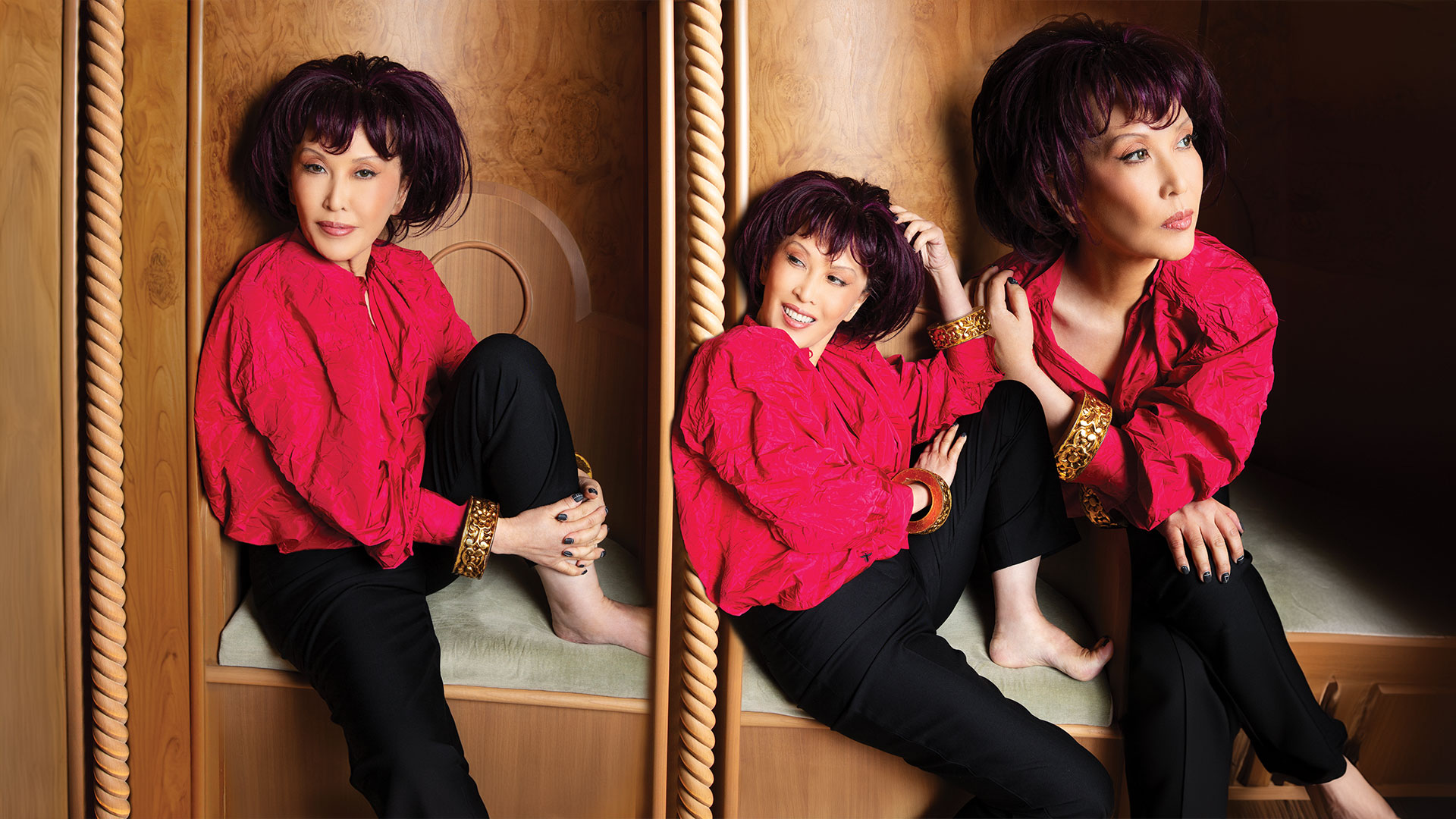It wasn’t easy to secure a date for our cover shoot with gallerist, curator and cultural ambassador Pearl Lam, whose influence stretches far beyond the walls of her galleries. She is never in one place for long, flitting from homes in London, Hong Kong and Shanghai and sundry world travels. Lam is, after all, recognised as one of Asia’s most important figures in contemporary art and has dedicated her career to bridging East and West, showcasing the rich tapestry of Asian art and design to a global audience.
When we finally lock in the date, she negotiates once more. “What do you mean four hours? One hour. Trust me, that’s all it will take,” she says with assurance.
Our afternoon session commences – already behind schedule – at a candle-lit, stained-glass-bedecked Italian restaurant in Tsim Sha Tsui. “Hmm. Interesting place. Designed by Joyce Wang, right?” says the woman of the (late) hour, in a tone that is less of a question, more of a challenge.
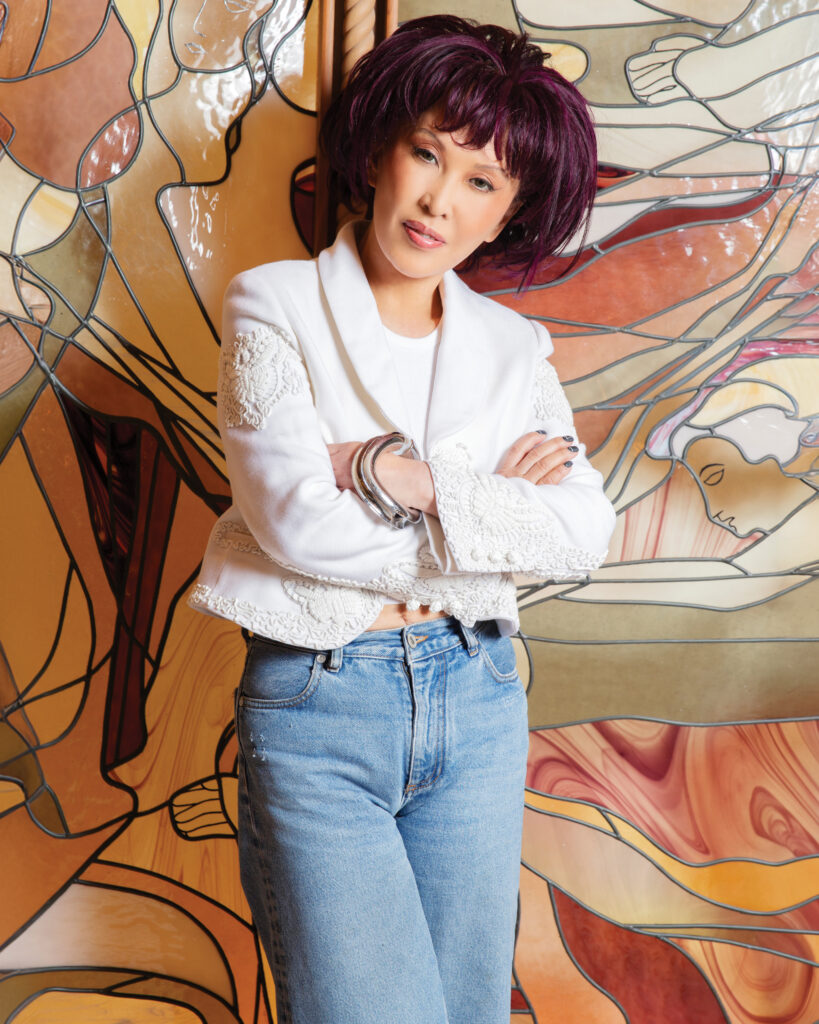
Within the first few minutes, Lam shares her personal space with us, opening her arms for a full-body hug, and then, moments later, commands the space, sitting regally across from the camera in a white top, ripped jeans and grey Balenciaga Bouncer trainers. Chunky armour-like silver bangles hang heavy from both wrists. Her signature violet bob is in its iconic state, teased high.
Outrageous Outlines
She jumps straight into the art conversation – her journey from the daughter of a Hong Kong property tycoon to a provocative powerhouse in the art world is a testament to her unwavering commitment to creativity and cultural exchange. Lam’s upbringing was steeped in privilege but also shadowed by familial expectations. Her father, Lim Por-yen, founder of the Lai Sun Group, left her with a legacy that she chose to redefine. As a child, she discovered her passion for painting, engaging in Chinese calligraphy and gradually transitioning to watercolours and other mediums.
She reminisces for a second on her rebellious childhood: “Painting and creativity always came naturally to me, but I struggled to determine how I could channel these abilities.” This internal conflict fuelled her desire to carve her own distinct path in the world.
At the age of 11, Lam was sent to the US, briefly, and then to the UK for her education. She relished the freedom of living abroad, far from the constraints of family. She gravitated from studying accountancy to the law and began to accumulate a diverse collection of art pieces, developing a keen eye for design. Returning to Hong Kong, she first flirted with fashion retailing, then found her true calling within the nascent art scene, defying her father’s reservations – “He said, ‘You cannot be a gallerist. I didn’t send you away for over 10 years to return to become a shopkeeper.’”
Pioneering Perspective
Lam’s entry into the art world began in earnest in 1993, when she started organising pop-up exhibitions in Hong Kong. This initiative was groundbreaking, offering a fresh platform for local and international artists to connect with new audiences. She launched Contrasts Gallery in Central, later rebranding it as Pearl Lam Galleries. Her passion for Chinese contemporary art culminated in 2005 when she established a branch in Shanghai, marking a significant milestone as the city emerged as a cultural hub.
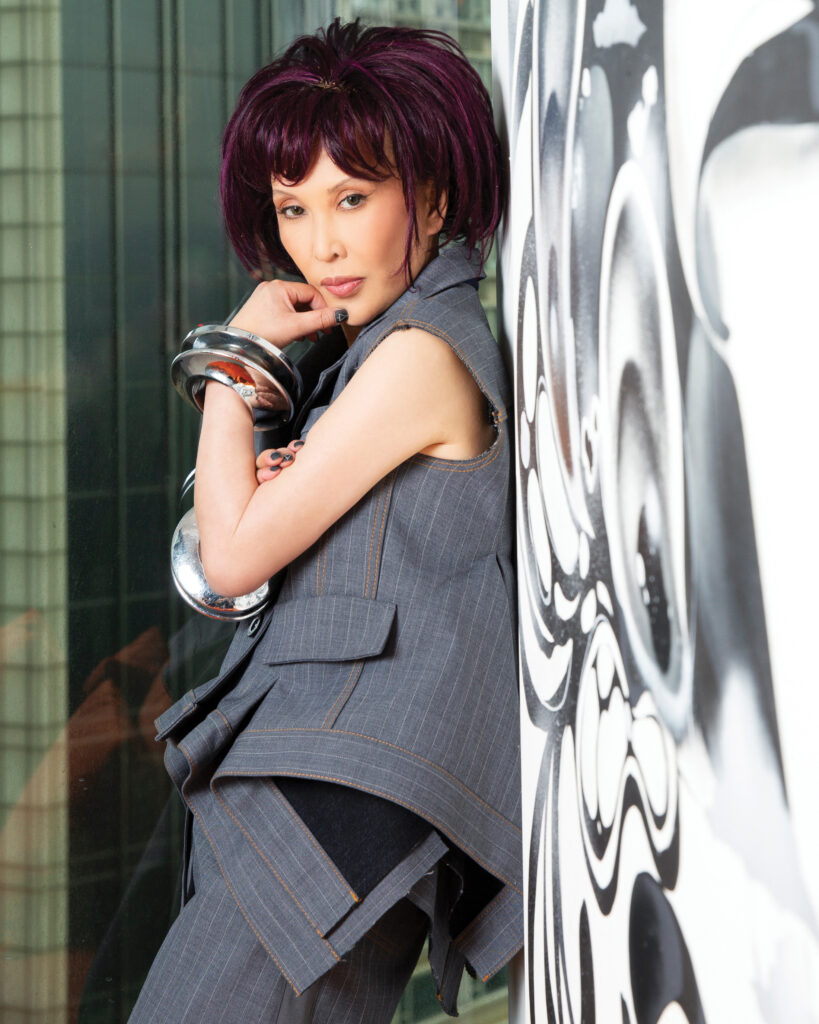
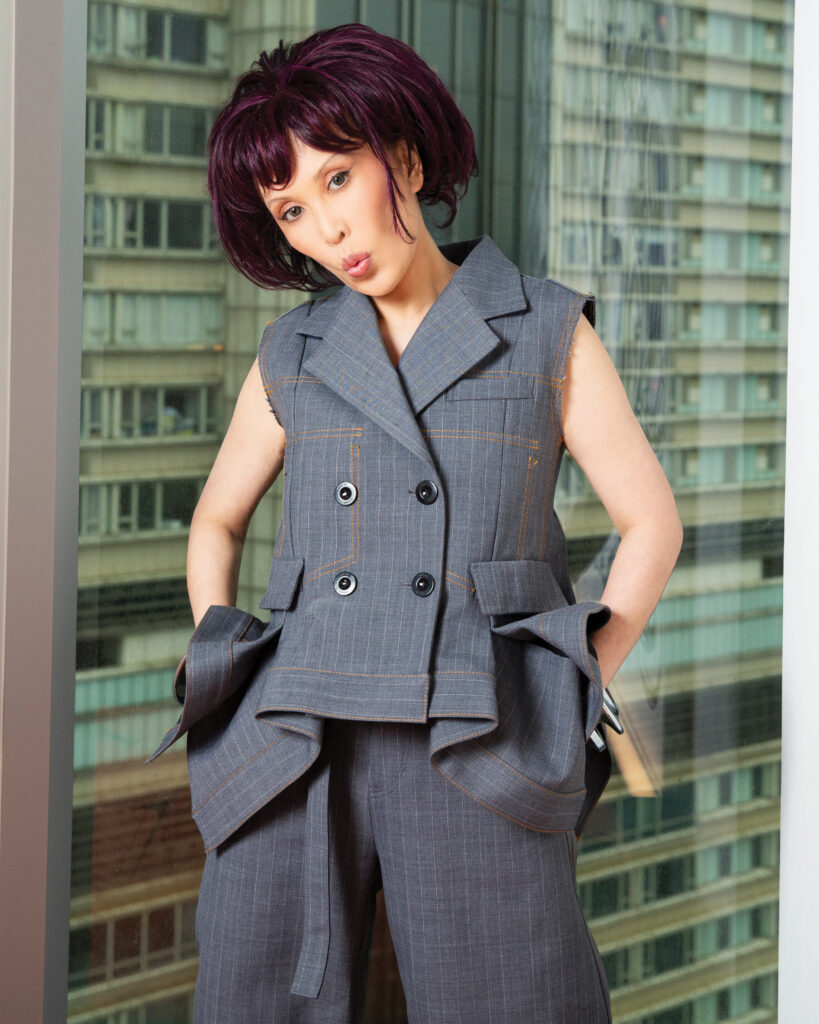
“We had a responsibility to introduce Chinese collectors to the international art market, and vice versa,” she remarks of this sortie north into the city where her mother had roots. Her early exhibitions featured works by renowned artists and designers such as Andrée Putman, bridging the gap between Eastern and Western aesthetics.
In 2008, she founded the China Art Foundation, furthering her commitment to promoting Chinese culture on a global stage. “My aim was to ensure that the increasing worldwide interest in contemporary Chinese art would have a sustainable future,” she says, emphasising her desire to facilitate genuine cultural dialogue.
Connecting the Dots
Lam has certainly succeeded, though there were numerous hurdles to surmount in a competitive art environment often dominated by Western perspectives. Her efforts to elevate Chinese artists like Zhu Jinshi and Ren Ri were met with scepticism, for example. “Introducing this dynamic artistic landscape to the Western world presented challenges in terms of providing historical context,” she notes.
Her commitment to inclusivity in the art market is evident in her selective curation process, prioritising originality and potential in emerging artists. “We often look for artists who show promise and have the capacity to evolve their practice over time,” she explains. This approach not only nurtures creativity but also ensures these artists receive recognition in a global context.
In 2014, she brought Pearl Lam Galleries to Singapore, hosting innovative exhibitions that showcased both local and international talent. She also expanded in Hong Kong; a second gallery space, in Sheung Wan, focused on nurturing younger artists, exemplified by her support for Ren Ri’s unique beeswax sculptures, which merge nature and chance into art.
Through the Looking Glass
Looking forward, Lam’s vision for the future of art includes increased cross-cultural collaborations and a continued emphasis on sustainability in artistic practices. She recognises the new challenges posed by digital trends and the evolving market landscape, viewing them as opportunities for innovation. Bringing younger, popular 21st-century names like Philip Colbert and Mr Doodle into the fold has also ignited a fresh frame of reference for her.
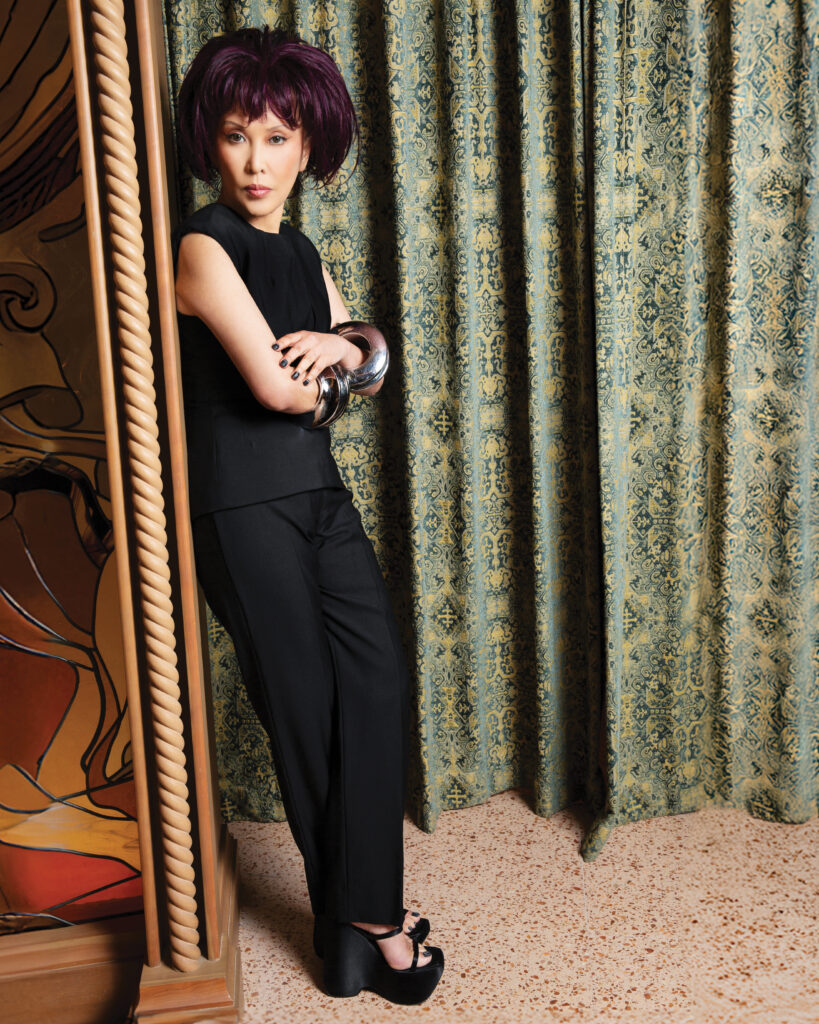
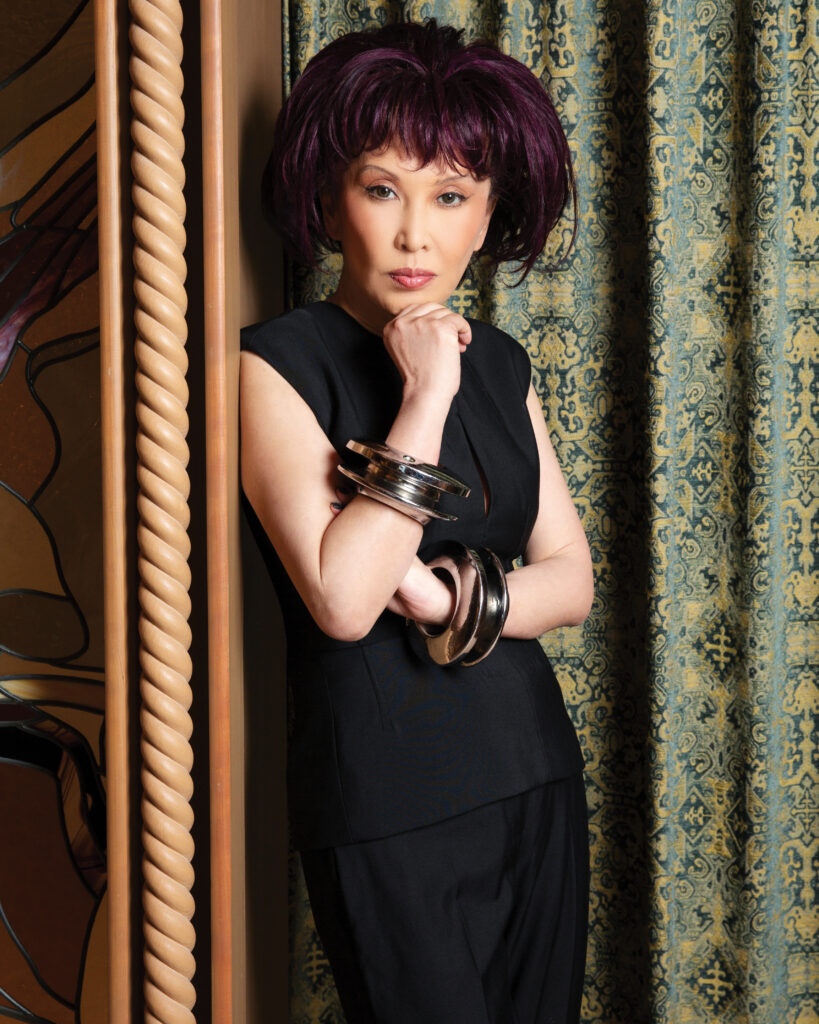
“Art communicates through a visual language, employing elements like colour, shape and composition to evoke emotions and tell stories,” she says. This understanding underpins her approach, ensuring that her galleries reflect the rich tapestry of human experience through art and, in some cases, the element of shock.
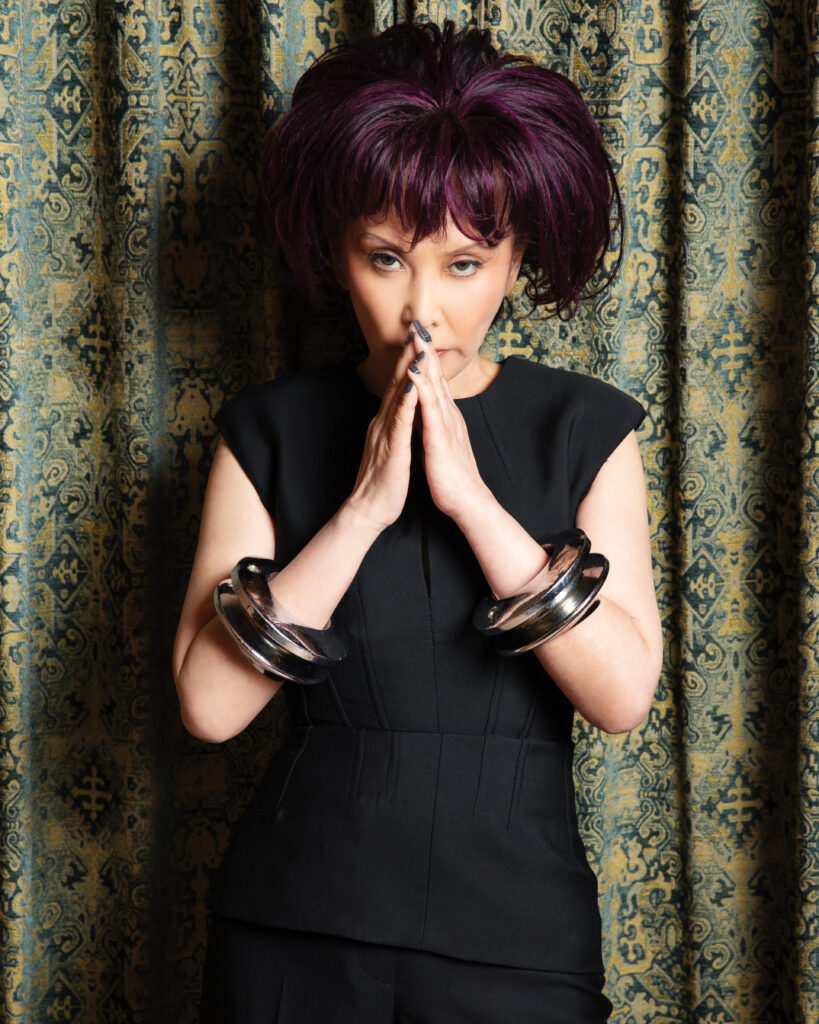
“You know, people always ask me if I ever plan to change my hair colour. I’ve had violet hair for the longest time. Who knows? It might be green tomorrow!” she laughs while opting to go barefoot on the last few frames of our shoot.
Voice for Cultural Exchange
Lam’s influence transcends the physical spaces of her galleries; she is a vital voice in discussions around contemporary art, diversity and cultural exchange. As a participant in various speaking engagements, she actively fosters dialogue on the inclusion of Eastern philosophies within global art narratives.
Her recent venture, The Pearl Lam Podcast, exemplifies her commitment to broadening perspectives. Indeed, it’s a new medium that she was born to command. Through insightful conversations with influential figures, Lam seeks to inspire and challenge conventional thinking. “I want to create a platform that sparks curiosity, promotes diverse perspectives and encourages innovative ideas,” she states, reflecting her mission to elevate art and its cultural significance.
Art for All
As the art world evolves, Lam remains at the forefront of cultural conversations. “Art plays a crucial role in society by enabling expression, communication and reflection,” she asserts. Her belief that art should be accessible to all drives initiatives to lower barriers and promote understanding among diverse audiences.
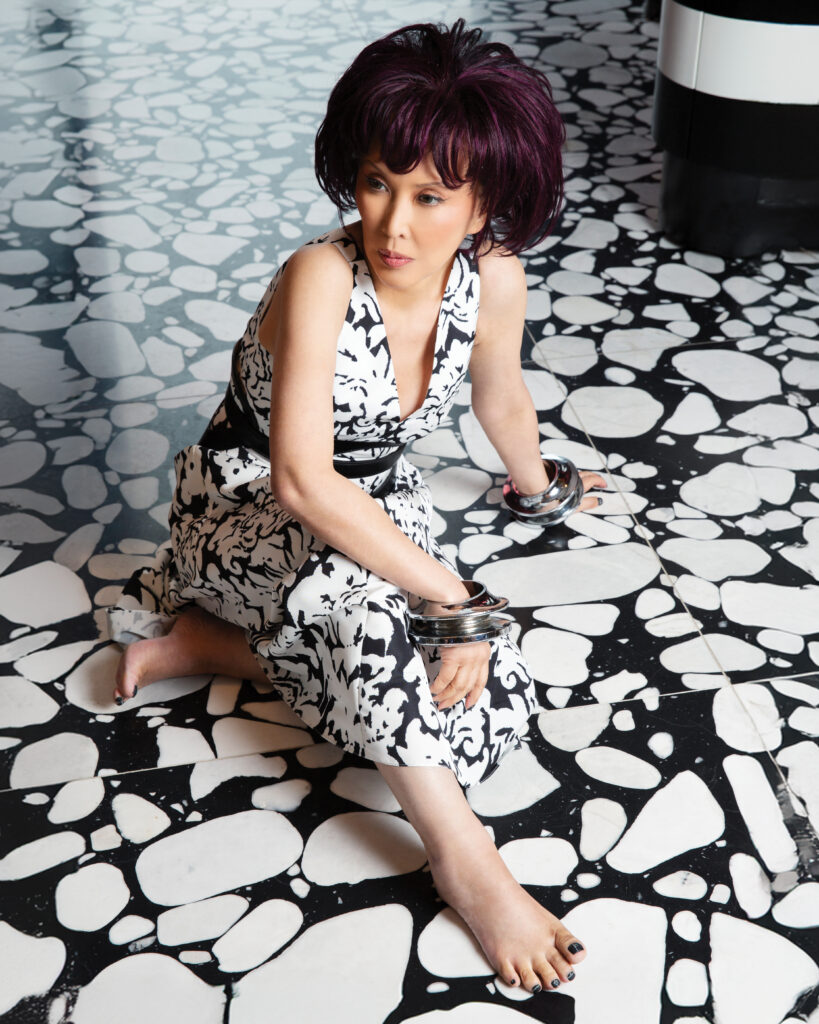
Her unique blend of business acumen and artistic sensibility, bold authenticity and irrepressible energy, has not only shaped her career but has also left an undeniable impact. In a world often divided by borders, Pearl Lam reminds us that art is a universal language, capable of forging connections and transcending cultural divides.
The takeaway from this session is that creating art and meaningful change has transformative power. If the arts are there to lift her up and give her wings, there’s a joyful symmetry in that. As she takes her leave, she smiles, raising a brow. “I told you. One hour. I was late but worth the wait, huh?”



